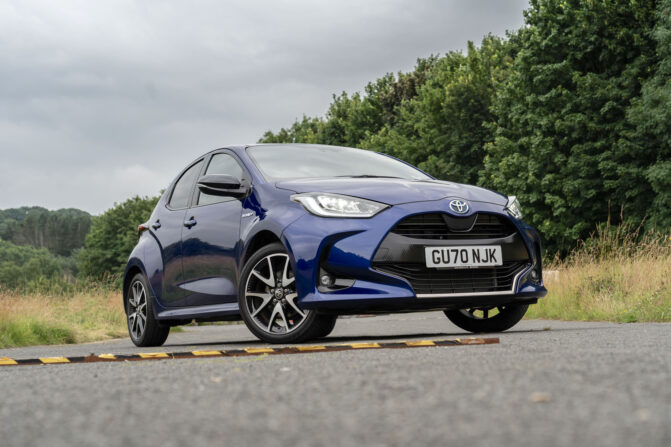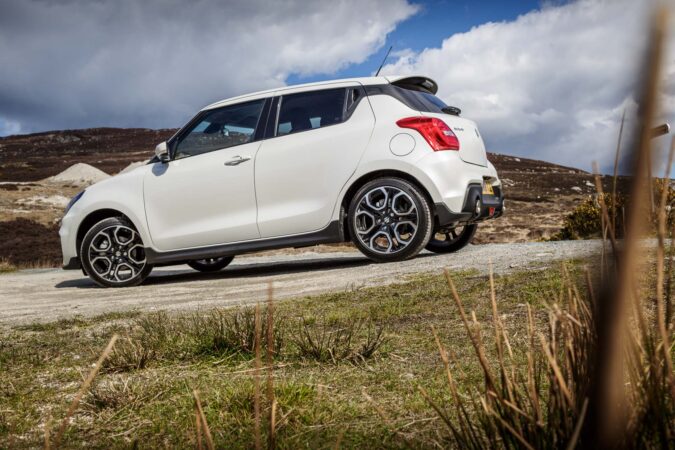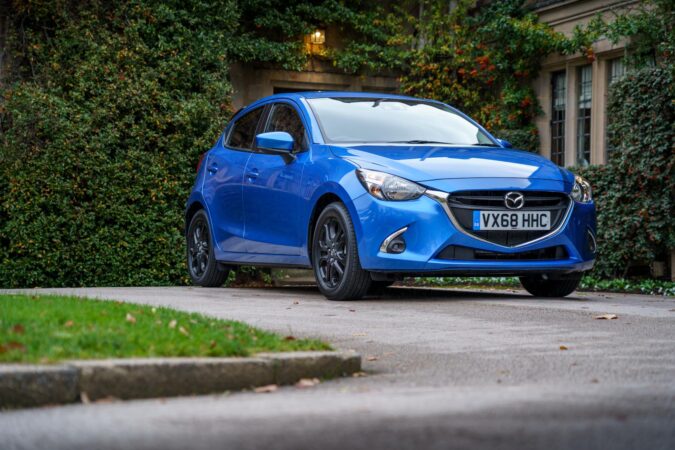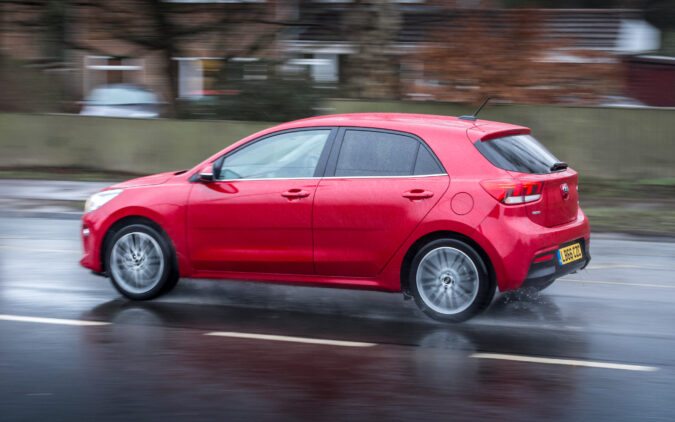With how poorly the economy’s been doing, it’s a fair assumption that most car owners and would-be buyers are especially wary and overtly cautious of how much money they’re spending and budgeting for their four-wheeled companions. This is particularly so if you’re shopping around in the used car market, where there are indeed some hidden gems waiting to be found, but one wonders just how reliable they are, or whether they’d empty out your bank account within seconds just to manage repairs and long-term running costs.
Thankfully, there’s a lot of data and research out there to give consumers a far better idea of which cars to go for (and to avoid entirely) if you’re looking to buy a manageably dependable used car. The bulk of these analytics and all that number crunching is done by organisations and brands like Warrantywise, one of the leading aftermarket car warranty providers in the UK, courtesy of their yearly Warrantywise Reliability Index leaderboard, showcasing the top-ten most reliable cars in the UK, all between 3 to 10 years of age on the market.
Top-Ten Most Reliable Cars In The UK (As Of 2024)
Without further ado, here are the top ten most reliable cars in the UK, as per Warrantywise’s Reliability Index report, now updated for 2024:
| Warrantywise Reliability Index Top-10 (2024 Edition) | |||
|---|---|---|---|
| Position | Vehicle Models | Highest Repair Request | Overall Score (Out Of 100) |
| 1 | Toyota Yaris | £2,887.20 | 89.0 |
| 2 | Suzuki Swift | £2,410.98 | 87.8 |
| 3 | Mazda Mazda2 | £3,636.34 | 85.9 |
| 4 | Toyota Auris | £2,160.00 | 85.9 |
| 5 | Toyota Aygo | £2,005.00 | 85.3 |
| 6 | Toyota Hilux | £1,004.00 | 85.3 |
| 7 | Kia Cee’d | £2,450.42 | 84.6 |
| 8 | Honda CR-V | £2,818.80 | 83.4 |
| 9 | Peugeot 107 | £1,349.86 | 83.4 |
| 10 | Kia Rio | £2,875.20 | 82.1 |
To give you some context into how Warrantywise collates all that data and puts together this list, the Reliability Index ranks and measures countless used cars that are sold in the UK based on; the frequency of requests for repairs, the average age of the vehicle at the time the faults occur, and the average mileage of the vehicle when the fault occurs, as well as the average workshop labour hours to settle the problem from start to finish. These cars are then given a respective score out of 100 to rank them on the Reliability Index.
These all include vehicles that are between 3 to 10 years of age, with the 2024 edition of Warrantywise’s Reliability Index looking at data stretching back from January 1st 2020 to September 30th 2023, such as the average repair costs for each car. Of course, since they’re the top aftermarket automotive warranty provider here in the UK, Warrantywise is in a good place to gather all this data, looking at individual claims made by its customers for repairs on their cars (including the costs, labour time, mileage, frequency of problems, etc.).
The only major qualification to be on the Reliability Index is for there to be more than 250 of each vehicle model under coverage by Warrantywise, giving them a broad and diverse pool of maintenance and repair data to work with.
Toyota (And Japan) Sweeps The Competition
As you can see, Toyota has absolutely swept its rivals aside in Warrantywise’s Reliability Index, with not one, not two, not even three, but four of their cars in the top ten. The Toyotas are led by the Yaris, leading ahead of the pack and landing in top place (thus, ranked as the most reliable model), with an index score of 89.0 out of 100. Meanwhile, 4th, 5th, and 6th places respectively are occupied by its fellow Toyota brethren, the Auris, Aygo, and the Hilux. These models, namely the Toyota Yaris (with an average repair cost of just £604.50), are praised by Warrantywise for their minimal repair costs and general reliability.
Personally, I’m not surprised, especially after watching Top Gear try (and fail) to kill a Hilux. It goes to show that Toyota’s commitment to over-building and over-engineering their cars does actually work, and it’s for the betterment of the consumer that their Toyotas are less prone to developing issues and needing costly repairs, particularly compared to most of their competitors. For decades, Toyota has been very proud of its manufacturing practices and rigorous quality control, which is why across the pond, it’s common to see Toyota owners in the US keep their cars, trucks, and SUVs for 15 to 20 years before replacing them, which is far longer compared to most other brands.
But it’s not just Toyota that showcases top-notch build quality, engineering, and dependability, as most of Warrantywise’s Reliability Index’s top-ten is occupied by other Japanese marques. This includes the No.2 most reliable car in the UK, the beloved Suzuki Swift, as well as Mazda’s entry-level hatch, the Mazda2, taking up third place, and the ever-popular Honda CR-V, which takes eighth place in the 2024 edition of Warrantywise’s Reliability Index. Another noteworthy little observation that I’ve noticed from the Reliability Index is the price bracket for these cars.
All of these cars sit on the more affordable end of the used (and new) car market, which goes to show that budget-friendly and cost-effective cars don’t compromise on long-term reliability, which is certainly a good thing. The rest of the top-ten, including the Kia Cee’d, Kia Rio, and the Peugeot 107, are some of the best budget cars that you can buy in the UK right now, so it’s nice to know that they remain relatively wallet-friendly, even when it comes to servicing and repairs after you’ve bought them. Given the ever-increasing cost of living, and rise in maintenance and car repair prices, I’d consider this factor integral when choosing a new or used car.
Picking And Choosing Reliable Cars To Consider
Understanding the importance that a car warranty could play in reducing the gut-wrenching financial impact that unexpected and major repairs could have on consumers, Warrantywise releases annually their Reliability Index, and while this data is mostly for their own proprietary internal research, it’s good to see them publishing these publicly for consumers to refer to and use as a benchmark. Nevertheless, aftermarket car warranties should be your last resort, not the first option, when it comes to giving you that added peace of mind.
Therefore, while it’s totally a great idea to shop around for aftermarket warranties (once your car’s original factory warranty has run out), it’s even better if you’re diligent when picking and choosing which cars to consider buying from the used market. So, here’s my quick little cheat sheet and checklist when researching which used cars to consider buying (and which ones to avoid entirely) based on how reliable (or unreliable) they are:
- Ensure That The Seller Is Trustworthy – It’s pretty easy enough for people to pass off a poorly maintained car and hide its many underlying issues to a prospective buyer. As such, if you’re buying a car from a used car lot or marketplace, do some research on them. Additionally, don’t be afraid to ask them questions about a particular car that you’re eyeing (i.e. if you notice rust spots around the wheel arches, or if it makes an odd noise during start-up). If they seem hesitant to answer you or if they’re dodging their way around the question, it might be worth walking away. A quick test drive could also reveal early signs of pending problems or red flags.
- Check The Car’s Service & MOT History – One of the best things you can do when researching on a specific used car that you’re keen on buying, is checking its service records and MOT history. The two things you need to focus on are; 1) whether or not specific parts of the car in question have been maintained regularly (such as regular oil changes or transmission servicing), and 2) were end-of-life parts and systems on the car replaced, rebuilt, or serviced prior to you buying it (?). One example of the latter is a transmission rebuild, which some cars might need as soon as they reach high mileage – if the car you’re buying has a lot of miles on the odometer, and a transmission rebuild hasn’t yet been done, it might be worth taking this cost into account. In short, look for used cars that were serviced regularly and were well-cared for by their previous owners.
- Doing Some Prior Research On A Car’s Reliability – This could be reading up something like the latest edition of the Warrantywise Reliability Index, looking up forums and other reviews, and even asking around your mates or neighbours who’ve owned that specific car you’re aiming to buy from the used market. Some cars have chronic and persistent issues with them – such as inherent design flaws that needs regular repairs – that can massively impact your ownership experience and long-term running costs down the line. If you’re still unsure of what to look for and check, you could otherwise arrange for a PPI (pre-purchase inspection) of a particular car before you finalise the transaction, or call up your local mechanic friend to come with you and check it over beforehand.







